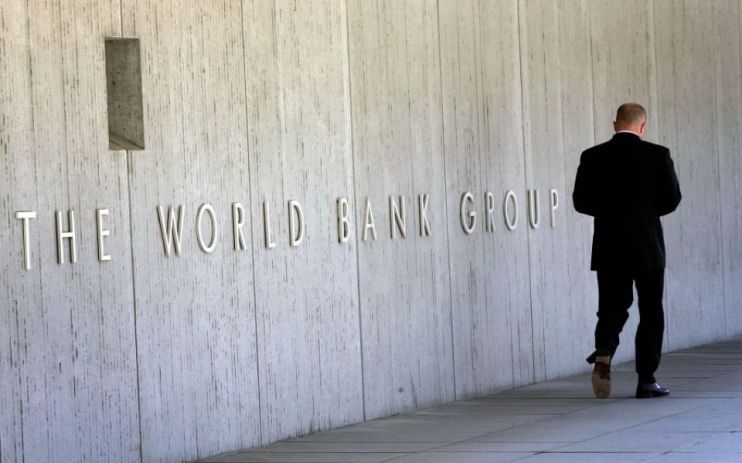World Bank slashes global growth forecast after warning the world is teetering on the edge of ‘stagflation’

THE WORLD Bank yesterday slashed its forecast for global growth this year by more than 1 per cent due to increasing inflation and the economic after-effects of Russia’s invasion of Ukraine.
The body had anticipated global growth of 4.1 per cent at its last update in January, but cut that in an announcement yesterday to just 2.9 per cent.
The bank said it expected growth to hover “around that pace” in 2023 and 2024, suggesting that the world will need to get used to more sluggish growth than previously hoped.
Lockdowns in China, which have gummed up global supply chains, have added to the headwinds buffeting trade across the world.
The report’s foreword warned that the danger of stagflation – a period of stagnant growth and high inflation was “considerable” and said that there is a “risk that inflation will remain higher for longer than currently anticipated.”
Inflation is already running at near four-decade highs in the UK and across Europe, with structural issues also pushing US inflation upwards.
The World Bank’s report authors warned that developing world growth would also slow below pre-pandemic trends, potentially exacerbating vulnerabilities in some states’ sovereign debt burdens.
BACK TO THE 1970S?
The report drew direct comparisons between the economic situation of the 1970s, widely thought of as the slowest period of growth in the post-war world, with today, and warned that there were three key aspects in which the two eras mirrored each other: persistent supply-side “disturbances” fuelling inflation preceded by a period of loose monetary policy, “prospects for weakening growth,” and “vulnerabilities that emerging market and developing economies face with respect to the monetary policy tightening that will be needed to rein in inflation.
However, the report’s author’s cautioned against drawing direct comparisons, suggested central banks were in a stronger place than they were five decades ago to take decisive action.
“The ongoing episode also differs from the 1970s in multiple dimensions: the dollar is strong, a sharp contrast with its severe weakness in the 1970s; the percentage increases in commodity prices are smaller; and the balance sheets of major financial institutions are generally strong,” the report reads.
The Bank also credits central banks with having a strong “track record” of controlling inflation, though critics of the Bank of England here have suggested Threadneedle Street’s ratesetters were asleep at the wheel last year as price and wage pressures began to present across the economy.